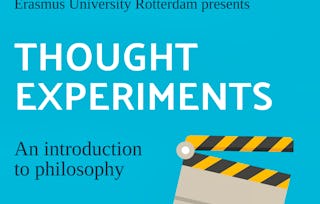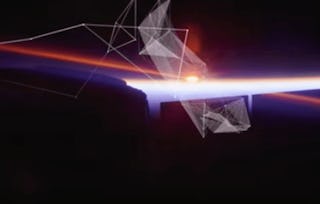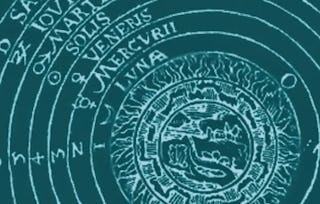Speculative metaphysics is challenging, but this course will whet your appetite for it, because it explains fundamental metaphysical problems and views in terms of what you can find in your kitchen and what happens in it when you cook and enjoy food. Here are the 8 bites on the menu.

Reality Bites: Introduction to metaphysics

Reality Bites: Introduction to metaphysics

Instructor: Tim De Mey
4,123 already enrolled
Included with
18 reviews
Recommended experience
Skills you'll gain
Details to know

Add to your LinkedIn profile
9 assignments
See how employees at top companies are mastering in-demand skills

There are 8 modules in this course
The introductory module explains what this thing called metaphysics is and what's it all about, namely: metaphysics is about all and everything. Furthermore, week 1 introduces ontology as the core of metaphysics, and explains its most fundamental methodological principles, like parsimony, and methodological tools, like Quine's method to determine one's ontological commitments.
What's included
4 videos1 reading1 assignment1 discussion prompt
The second module deals with the most famous and infamous problem in the whole history of metaphysics, i.e., the problem of universals. Whereas objects or 'particulars' can only be in one place at the same time, properties seem to be present in many places at the same time. This raises the question whether properties are, in contrast to particulars, transcendent or immanent 'universals'. Alternatively, properties can be reduced to classes of particulars, resemblances between particulars, or 'tropes', i.e., abstract particulars.
What's included
4 videos1 reading1 assignment1 discussion prompt
In more than one way, the problem of substance is the converse of the problem of universals. If two objects share all their properties, what individuates them from each other? And how do objects bear their properties? Does it take properties to be able to bear properties? Or if that quicks off an infinite regress, are substances propertyless substrata, naked substrata? Or mere bundles of properties, whether universals or tropes? Or still, are substances thick or thin particulars?
What's included
4 videos1 reading1 assignment1 discussion prompt
We all think that we know that time passes. But there are some interesting metaphysical problems with time and its alleged passage. Firstly, do only objects and persons that exist now, really exist? Or also past objects and persons? Or perhaps even future objects and persons? Furthermore, is time real? Because, as McTaggart argues, if change is fundamental to time, the ordering of events in terms of past, present and future is, on the one hand, fundamental, and on the other hand, incoherent.
What's included
3 videos1 reading1 assignment1 discussion prompt
If one event causes another event, is there a relation of necessity between the two? Famously, Hume argued there was no natural necessity, and he proposed to reduce causation either to regularity or to counterfactual dependency. However, there are many objections and alternatives to Humeanism. Perhaps, causation is singular, simple or rather diverse.
What's included
4 videos1 reading1 assignment1 discussion prompt
Objects can undergo changes and yet remain the same over time. They 'persist'. But what does that mean? What does it involve? In this module the conceptions and the arguments for and against 4 views about persistence are compared. Our starting point is the classic riddle of the Ship of Theseus.
What's included
3 videos1 reading1 assignment1 discussion prompt
The special composition question is the question when objects together become parts of a whole? Although it's intuitive that sometimes they do and sometimes they don't, it turns out to be notoriously difficult to pinpoint a criterion. That motivates numerous metaphysicians to argue for extreme answers: either that there are no composite objects at all, or that every single combination of disparate object constitutes a further, composite object.
What's included
4 videos1 reading1 assignment1 discussion prompt
In the final module, our relation to the mind-independent world is at stake. Are certain properties, like colors and sounds, secondary qualities, meaning that they exist in the world merely as dispositions to trigger certain responses or experiences in us? And what is the scope of these secondary qualities, this response-dependency?
What's included
4 videos1 reading2 assignments1 discussion prompt
Instructor

Offered by
Explore more from Philosophy
 Status: Preview
Status: PreviewErasmus University Rotterdam
 Status: Free Trial
Status: Free TrialDartmouth College
 Status: Preview
Status: PreviewThe Hong Kong University of Science and Technology
 Status: Free Trial
Status: Free TrialDartmouth College
Why people choose Coursera for their career

Felipe M.

Jennifer J.

Larry W.

Chaitanya A.
Learner reviews
- 5 stars
66.66%
- 4 stars
22.22%
- 3 stars
5.55%
- 2 stars
5.55%
- 1 star
0%
Showing 3 of 18
Reviewed on May 14, 2024
Excellent course! Well presented. Useful and interesting. Not for beginners.

Open new doors with Coursera Plus
Unlimited access to 10,000+ world-class courses, hands-on projects, and job-ready certificate programs - all included in your subscription
Advance your career with an online degree
Earn a degree from world-class universities - 100% online
Join over 3,400 global companies that choose Coursera for Business
Upskill your employees to excel in the digital economy
Frequently asked questions
To access the course materials, assignments and to earn a Certificate, you will need to purchase the Certificate experience when you enroll in a course. You can try a Free Trial instead, or apply for Financial Aid. The course may offer 'Full Course, No Certificate' instead. This option lets you see all course materials, submit required assessments, and get a final grade. This also means that you will not be able to purchase a Certificate experience.
When you purchase a Certificate you get access to all course materials, including graded assignments. Upon completing the course, your electronic Certificate will be added to your Accomplishments page - from there, you can print your Certificate or add it to your LinkedIn profile.
Yes. In select learning programs, you can apply for financial aid or a scholarship if you can’t afford the enrollment fee. If fin aid or scholarship is available for your learning program selection, you’ll find a link to apply on the description page.
More questions
Financial aid available,

